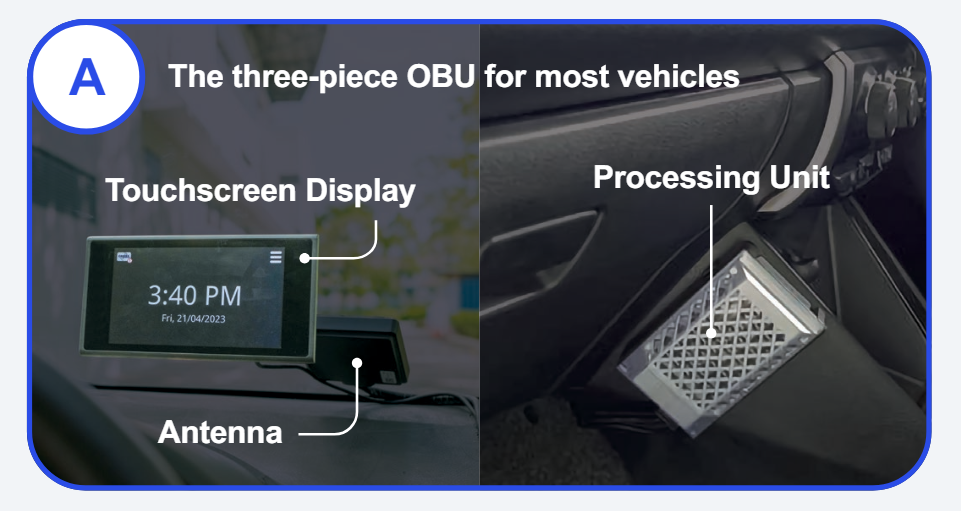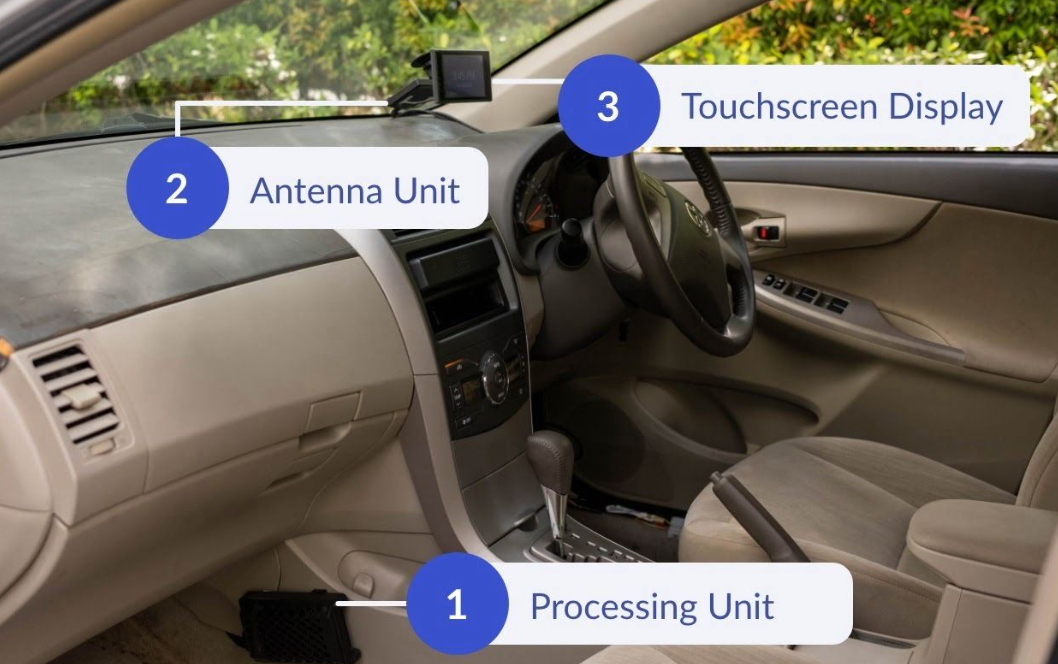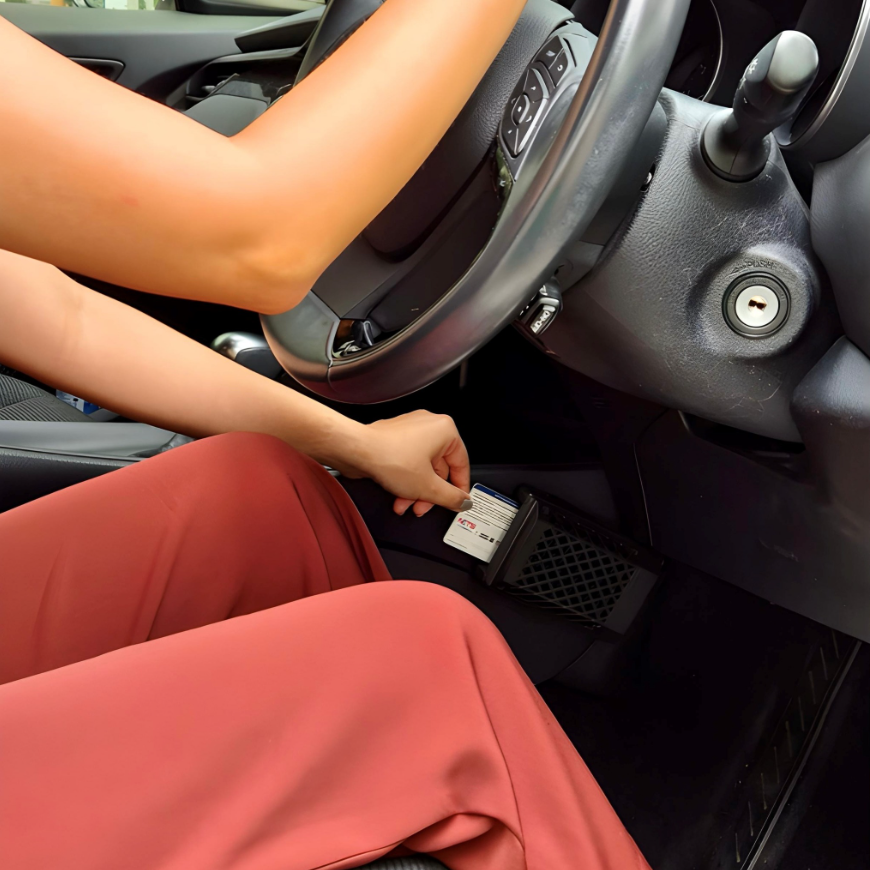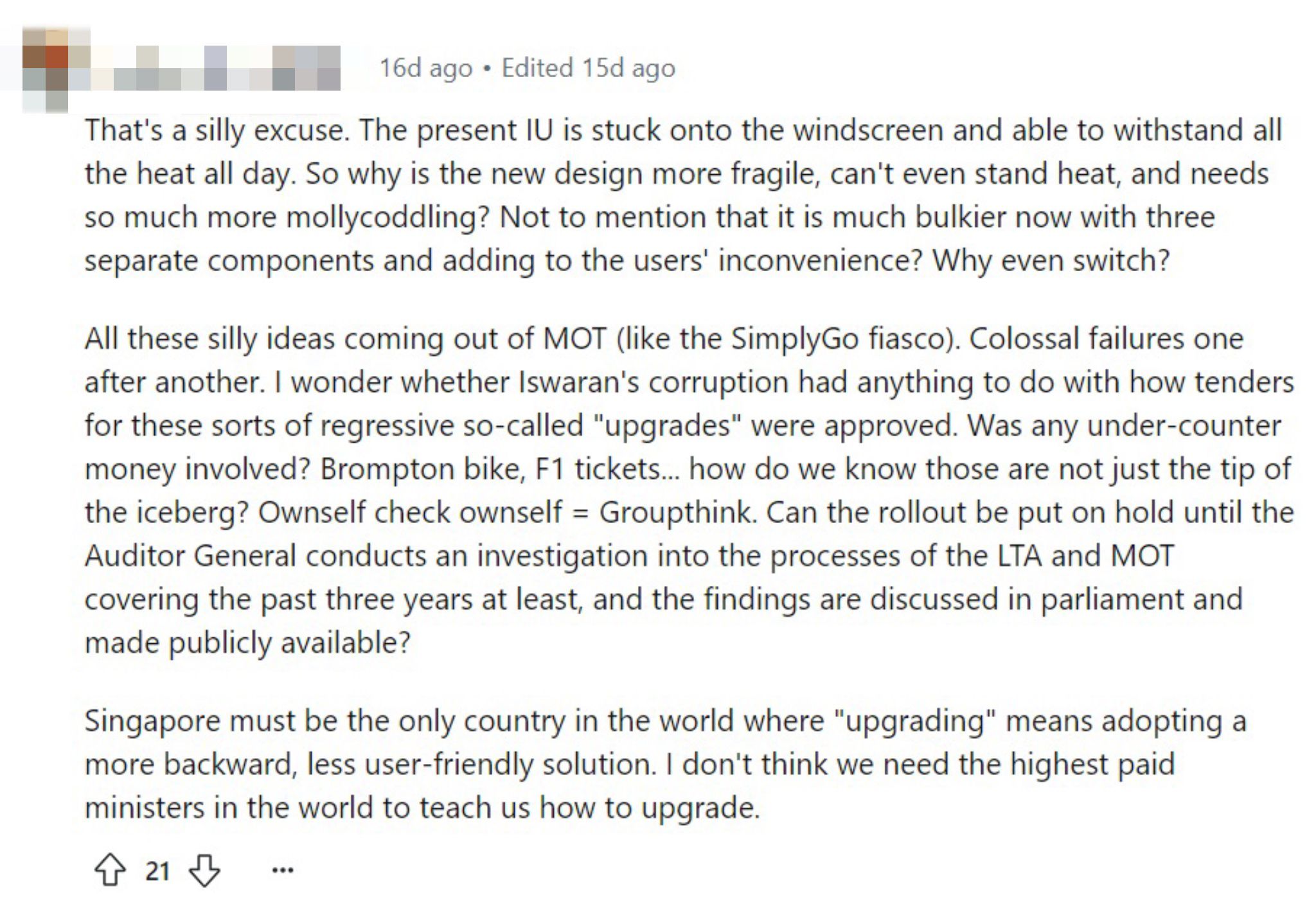For those of you who don’t know, the current 25-year-old gantry-based ERP system is being replaced by a new Global Navigation Satellite System (GNSS)-based ERP 2.0 system.
Watch this video for more information on ERP 2.0, and the complaints people are making:
ERP 2.0 will require all Singapore-registered vehicles to replace their In-Vehicle Unit (IU) with a new On-Board Unit (OBU).
All eligible Singapore-registered vehicles will receive an OBU free of charge except vehicles due for mandatory deregistration during the course of the OBU installation exercise.
Those who have to get an OBU installed in their vehicles will receive an official letter and notification from LTA to change out their IU.
The OBU and installation will be free if installed within one’s allocated installation period.
OBU For Motorcycles
Motorcycles will be fitted with a single-piece design that includes a processing unit and a small touchscreen for riders to toggle through different functions.

OBU For All Other Vehicles
Cars and all other vehicles will be fitted with a three-piece design, comprising an antenna, processing unit and an optional touchscreen display.



Those who choose not to install the touchscreen display can download a compatible mobile application to view ERP and other traffic information.
Available apps include ERP 2.0, Breeze, Galactio, and Motorist Super App. These four apps are available on both the App Store and Google Play.
While vehicle owners can choose where to install the processing unit, LTA recommends for it to be installed either at the driver’s or the front passenger’s footwell.

The OBU will provide information on ERP and parking charges. The three-piece OBU will also deliver real-time road safety information such as locations of nearby school zones, Silver Zones, bus lanes and speed cameras.
So it’s not just for ERP and carpark payment.
In time to come, the OBU also will alert motorists when approaching an ERP-charging location and display real-time traffic incident alerts.
Sounds great, right?
Online Claims That The OBU Does Not Comply With International Standards
But, you know Singaporeans, we always find something to complain about.
Many road-users complained about OBUs because of the trouble they’d have to go through to get it installed, and also because of its initial awkward default placing when OBUs were first launched late last year.
Singaporeans then found another thing to complain about and took to the internet to claim that the ERP 2.0 OBUs fail to comply with international standards.
But don’t worry, the Land Transport Authority (LTA) has refuted these claims. It’s safe to use OBUs in Singapore.
LTA Refutes Online Claims
LTA said on 14 May that the aforementioned claims are false.
According to the authority, the OBU “meets the relevant global benchmarks for electronic devices.”
On 8 May, MP Louis Chua had asked if the new OBU meets the Automotive Electronics Council Q100 (AEC-Q100) requirements for reliable operations in Singapore’s climate.
Transport Minister Chee Hong Tat’s parliamentary reply was that LTA had conducted “quite a comprehensive set of tests”, including climate and crash tests.
LTA later pointed out that Mr Chua had used the incorrect electronic devices standard in his question.
“The AEC-Q100 standard is used to measure packaged integrated circuits used in vehicles, such as the chips used in the in-car entertainment system,” the authority said.
“AEC-Q100 focuses on the quality of individual components and is not meant for devices that comprise many components that are put together.”
The relevant standards that the OBU was tested against were the International Electrotechnical Commission’s IEC-60068 and IEC-60529. These two standards are widely used to test the operational reliability of electronic or electrical devices, said LTA.
To achieve qualification against these standards, the OBU passed a wide range of tests including temperature and humidity.
“When properly installed, it is safe and reliable to use in our operating environment,” the authority assured.
OBU’s Processing Unit Is Like A Mini-Computer
The authority said that the processing unit of the OBU functions like a mini-computer and generates heat when it is operating.
The existing IU and vehicle dashcams are either passive devices or do not have the same computing functions as the OBU’s processing unit, and do not generate heat when operating.
Hence, these, unlike the processing unit, can be installed near a vehicle’s dashboard.
However, since the processing unit is more similar to a smartphone, installing it near the dashboard could cause it to overheat in Singapore’s climate, causing it to stop working temporarily.
This is similar to phones, says the authority.
I mean, leaving your phone out under the sun for just 10 minutes already makes it hot enough to fry an egg, imagine if your OBU was left roasting for hours.
Apple issued a technical advisory that their devices should be stored between -20°C to 45°C, and that users should not leave their iPhones in a parked car on a hot day, said LTA.
It is the same reason the authority does not recommend placing the processing unit on the dashboard.
According to LTA, temperature at the dashboard could reach 50°C to 52°C on a hot day, compared to 38°C 39°C at the footwell.
The footwell is hence the recommended location for the processing unit to be installed at.
OBU Is Not Well-Received
Whether the OBU has passed standards or not, it seems lots of Singaporeans have issues with the OBU itself anyway.
One thing about Singaporeans is that when there is something to complain about, they will be sure to complain about it.
Many have taken to online platforms to voice out their disappointment and unhappiness with the OBU, with some even comparing it to SimplyGo, which simply go away when Singaporeans complained about it.






